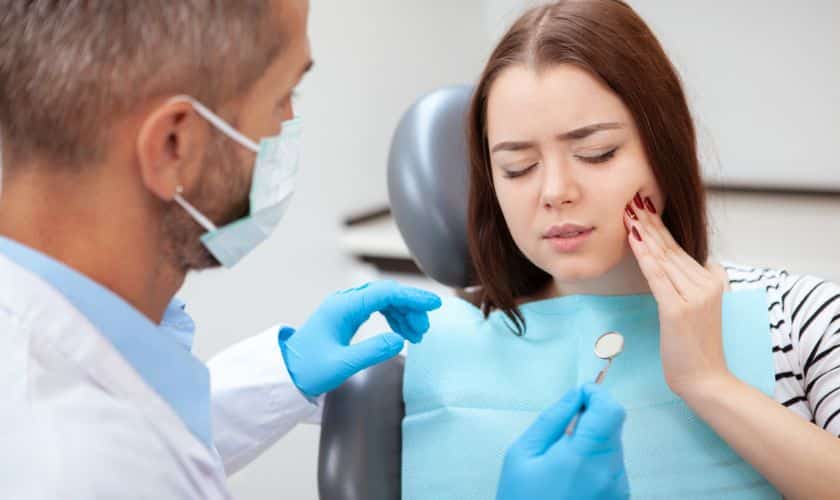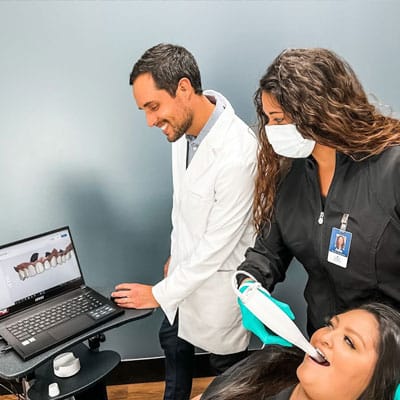
Emergencies can strike at any moment, and dental issues are no exception. From sudden toothaches to chipped teeth, knowing how to handle dental emergencies can make a significant difference in alleviating pain and preventing further damage. In this article, we’ll explore everything you need to know about emergency dental care, empowering you to act swiftly and effectively when dental mishaps occur.
Dental emergencies encompass a range of situations that require immediate attention to alleviate pain, prevent complications, and preserve oral health. These situations can occur unexpectedly, often causing anxiety and discomfort.
Common Types Of Dental Emergencies
Identifying Toothaches and Sensitivity
Toothaches can be excruciating and may indicate underlying issues such as cavities, infections, or even a cracked tooth. Sensitivity to hot or cold temperatures could also signal a dental emergency.
Dealing with Broken or Chipped Teeth
Accidents happen, and a broken or chipped tooth is a common result. These situations can expose sensitive nerves, leading to pain and potential infections.
Handling Knocked-Out Teeth
A knocked-out tooth demands quick action. If the tooth’s root remains intact, it might be salvageable. Handling the tooth carefully and seeking immediate dental assistance can make a difference.
Immediate Actions to Take
First Aid for Toothaches
Rinsing your mouth with warm water, gently flossing around the affected area, and taking over-the-counter pain relievers can provide temporary relief until professional help is available.
Steps for Broken Teeth
Collect any broken tooth fragments, rinse them, and rinse your mouth with warm water. Applying a cold compress externally can help alleviate swelling.
Reinserting Knocked-Out Teeth Temporarily
If a tooth is knocked out, try to reinsert it gently into its socket without touching the root. If that’s not possible, placing the tooth in a container of milk or saliva can help preserve it until you reach the dentist.
When To Seek Professional Help
Signs that Require Urgent Dental Care
Unbearable pain, excessive bleeding, swelling, or signs of infection indicate a need for immediate dental attention. Ignoring these signs can worsen the situation.
Contacting an Emergency Dentist
Keep your dentist’s contact information handy and reach out as soon as an emergency arises. Dental professionals can provide guidance over the phone and schedule an immediate appointment if necessary.
Preventing Dental Emergencies
Practicing Good Oral Hygiene
Maintaining regular oral hygiene can prevent many dental emergencies. Brushing, flossing, and regular check-ups can help identify and address potential issues before they become emergencies.
Using Mouthguards During Sports
If you’re active in sports, wearing a mouthguard can significantly reduce the risk of dental injuries. Custom-fitted mouthguards offer the best protection.
The Role Of Tele-Dentistry
Virtual Consultations for Dental Emergencies
In some cases, virtual consultations can provide initial guidance for dental emergencies. Tele-dentistry allows dentists to assess the situation and recommend immediate steps to take.
Emergency Dental Kit: What To Include?
Essential Items for Dental First Aid
Assembling an emergency dental kit with items like gauze, a small container, pain relievers, and a dental mirror can help you manage unexpected dental situations effectively.
Addressing Children’s Dental Emergencies
Children are prone to dental mishaps while playing. Knowing how to handle a child’s dental emergency, from a loose tooth to a knocked-out tooth, is crucial for parents and caregivers.
Managing Pain and Discomfort
Over-the-Counter Pain Relief
Over-the-counter pain relievers like ibuprofen can temporarily alleviate dental pain. However, these are short-term solutions; seeking professional help is essential.
Applying Cold Compresses
Applying a cold compress to the affected area can help reduce swelling and numb the pain. Remember to wrap the ice pack in a cloth to avoid direct contact with the skin.
Dental emergencies can be distressing, but being prepared and informed can ease the situation. By following the appropriate steps and seeking professional help when needed, you can navigate dental emergencies with confidence.










